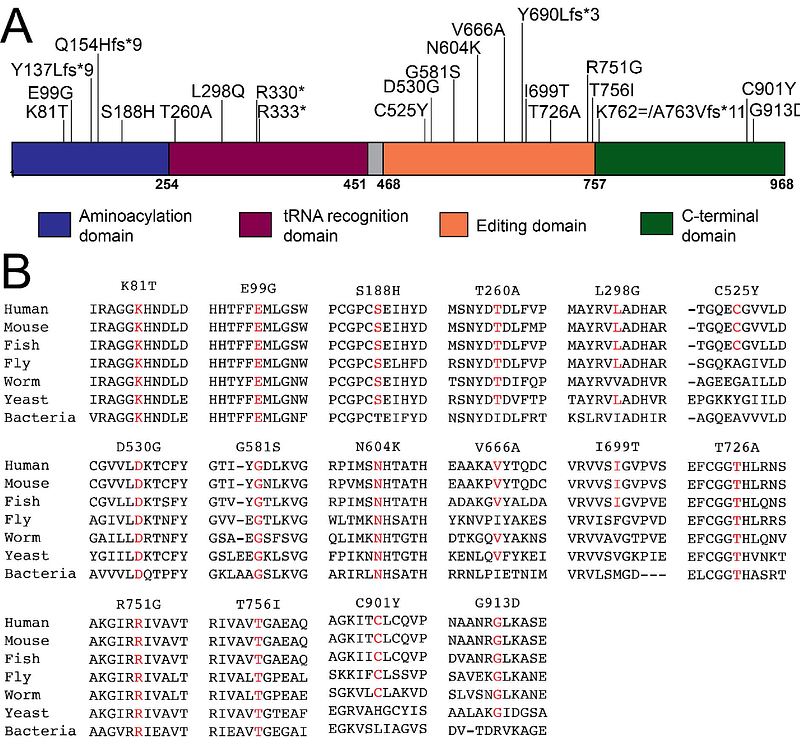Comprehensive assessment of recessive, pathogenic AARS1 alleles in a humanized yeast model reveals loss-of-function and dominant-negative effects

Comprehensive assessment of recessive, pathogenic AARS1 alleles in a humanized yeast model reveals loss-of-function and dominant-negative effects
Kuo, M. E.; Parish, M.; Jonatzke, K. E.; Antonellis, A.
AbstractAlanyl-tRNA synthetase 1 (AARS1) encodes the enzyme that ligates tRNA molecules to alanine in the cytoplasm, which is required for protein translation. Variants in AARS1 have been implicated in early-onset, multi-system recessive phenotypes and in later-onset dominant peripheral neuropathy; to date, no single variant has been associated with both dominant and recessive diseases raising questions about shared mechanisms between the two inheritance patterns. AARS1 variants associated with recessive disease are predicted to result in null or hypomorphic alleles and this has been demonstrated, in part, via yeast complementation assays. However, pathogenic alleles have not been assessed in a side-by-side manner to carefully scrutinize the strengths and limitations of this model system. To address this, we employed a humanized yeast model to evaluate the functional consequences of all AARS1 missense variants reported in recessive disease. The majority of variants showed variable loss-of-function effects, ranging from no growth to significantly reduced growth. These data deem yeast a reliable model to test the functional consequences of human AARS1 variants; however, our data indicate that this model is prone to false-negative results and is not informative for genotype-phenotype studies. We next tested missense variants associated with no growth for dominant-negative effects. Interestingly, K81T AARS1, a variant implicated in recessive disease, demonstrated loss-of-function and dominant-negative effects, indicating that certain AARS1 variants may be capable of causing both dominant and recessive disease phenotypes.


